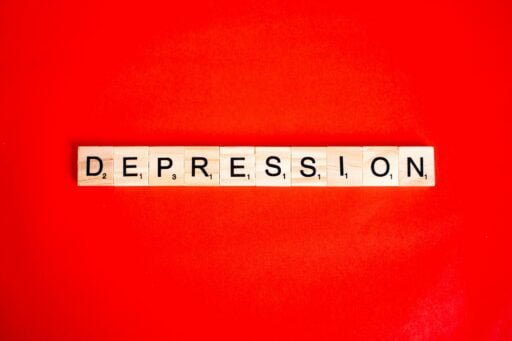Having a baby is a transformative and joyous experience, but for some, it can also bring about immense challenges, such as postpartum depression. As a new parent, navigating through this difficult journey can be overwhelming, and you may find yourself wondering if you can receive disability benefits for postpartum depression. In this article, we will explore the possibility of obtaining disability for postpartum depression, offering insight into the process and resources available to support you during this challenging time.

Understanding Postpartum Depression
Definition of postpartum depression
Postpartum depression, also known as postnatal depression, is a mood disorder that affects new mothers within the first year after giving birth. It is characterized by feelings of sadness, irritability, and hopelessness, which can significantly impact a mother’s ability to care for herself and her baby. Postpartum depression is a serious condition that requires medical attention and support.
Causes of postpartum depression
While the exact cause of postpartum depression is not known, it is believed to be a combination of physical, emotional, and hormonal factors. The sudden drop in hormone levels after childbirth may contribute to the development of postpartum depression. Additionally, other risk factors, such as a history of depression, a lack of support, or stressful life events, can increase the likelihood of experiencing postpartum depression.
Symptoms of postpartum depression
Postpartum depression can manifest in various ways and may differ from person to person. Common symptoms include persistent feelings of sadness, anxiety, and despair. New mothers may also experience changes in appetite, sleep disturbances, and a loss of interest in activities they once enjoyed. Other symptoms may include difficulty bonding with the baby, excessive crying, and thoughts of self-harm or harming the baby. It is essential to recognize these symptoms and seek help promptly.
Qualifying for Disability Benefits
Overview of disability benefits
Disability benefits, provided by the Social Security Administration (SSA), are intended to provide financial support for individuals who are unable to work due to a disabling condition. These benefits can help cover the costs of living expenses and medical treatment. While postpartum depression may qualify as a disabling condition, it is important to understand the specific criteria and evaluation process for qualifying for disability benefits.
Criteria for qualifying for disability benefits
To qualify for disability benefits based on postpartum depression, individuals must meet the SSA’s guidelines. The SSA utilizes a five-step process to evaluate disability claims, considering factors such as the severity of the condition, the impact on daily functioning, and the ability to perform any work. It is crucial to provide sufficient medical evidence that supports the diagnosis and demonstrates the limitations imposed by postpartum depression.
Evaluation process for disability benefits
When applying for disability benefits, the SSA will review the medical evidence provided, including documentation from healthcare professionals and any additional evidence submitted. They may also request a consultative examination, where a healthcare professional chosen by the SSA will assess the individual’s condition. The evaluation process aims to determine the severity of postpartum depression and its impact on the ability to work.
Medical Evidence for Postpartum Depression
Importance of medical evidence
Medical evidence plays a vital role in the disability benefits application process. It provides an objective assessment of the individual’s condition and helps the SSA understand the impact of postpartum depression on their ability to work. Medical evidence is crucial to support the diagnosis, treatment history, and functional limitations caused by postpartum depression.
Types of medical evidence required
The SSA requires comprehensive medical evidence to evaluate a disability claim for postpartum depression. This includes medical records from healthcare professionals involved in the diagnosis and treatment of the condition. The medical evidence should clearly document the symptoms experienced, the duration and severity of the symptoms, any functional limitations, and the response to treatment.
Documentation from healthcare professionals
It is essential to obtain detailed documentation from healthcare professionals involved in the treatment of postpartum depression. This can include records from obstetricians, psychiatrists, therapists, and any other specialists involved in the care. These records should include diagnosis information, treatment plans, progress notes, medication history, and any other relevant information that supports the severity and impact of postpartum depression.
Applying for Disability Benefits
Preparing the application
When applying for disability benefits, it is crucial to carefully complete the application with accurate and detailed information. This includes providing personal details, medical history, and a description of how postpartum depression affects daily activities and the ability to work. Taking the time to thoroughly prepare the application can improve the chances of a successful outcome.
Required documents for the application
Alongside the completed application form, several documents must be included to support the disability claim for postpartum depression. These include medical records and reports from healthcare professionals, documentation of any treatment received, and any supporting evidence such as testimonies from family members or caregivers. It is important to gather all relevant documents to present a comprehensive case.
Tips for a successful application
To increase the chances of a successful disability benefits application for postpartum depression, several tips can be followed. It is crucial to provide detailed and accurate information about symptoms, limitations, and the impact on daily functioning. Additionally, ensuring all required medical evidence and supporting documents are included is essential. Lastly, seeking assistance from a disability attorney or advocate can help navigate the application process and provide guidance on meeting the necessary criteria.

Disability Evaluation Process
Initial disability determination
Once the disability benefits application is submitted, it will be initially reviewed to ensure all required information and documentation is included. If any information is missing, the SSA may request additional documentation or clarification. The initial determination stage aims to assess whether the applicant meets the non-medical requirements and initial medical requirements for disability benefits.
Consultative examinations
In some cases, the SSA may require a consultative examination to gather additional medical evidence. This examination is typically performed by a healthcare professional chosen by the SSA and serves to evaluate the severity of postpartum depression and its impact on the individual’s ability to work. It is essential to attend these examinations and provide accurate information about symptoms and limitations.
Reviewing medical records
Throughout the disability evaluation process, the SSA will thoroughly review the medical evidence submitted, including medical records from healthcare professionals. The medical records should provide a clear and comprehensive overview of the diagnosis, symptoms, treatment history, and functional limitations caused by postpartum depression. The review of medical records helps the SSA assess the severity of the condition and its impact on the individual’s ability to work.
Postpartum Depression and Social Security Administration
Listing of Impairments
The SSA maintains a Listing of Impairments, known as the “Blue Book,” which outlines various medical conditions that automatically qualify for disability benefits. While postpartum depression does not have a specific listing, it may be evaluated under other mental disorders listed in Section 12. The criteria for meeting these listings involve demonstrating the severity of the condition and its impact on the ability to work.
Meeting the listing requirements
To meet the listing requirements for disability benefits based on postpartum depression, the severity of the condition must be demonstrated. This includes providing evidence of frequent and intense symptoms, ongoing treatment, and functional limitations that significantly impair the ability to work. Individuals must provide sufficient medical evidence that supports the severity of their postpartum depression to meet the listing requirements.
Functional limitations and residual functional capacity
If an individual’s postpartum depression does not meet the specific listing requirements, the SSA will assess their residual functional capacity (RFC). RFC refers to the individual’s ability to perform work-related activities despite their impairments. The SSA considers the limitations caused by postpartum depression, such as concentration difficulties, emotional instability, and limitations in activities of daily living, when evaluating RFC.

Other Factors to Consider
Duration and severity of symptoms
When evaluating a disability claim for postpartum depression, the SSA assesses the duration and severity of the symptoms. Chronic and severe symptoms that persist despite treatment can strengthen the case for disability benefits. It is crucial to provide comprehensive medical evidence that demonstrates the ongoing and significant impact of postpartum depression on daily functioning.
Impact on daily functioning
The impact of postpartum depression on daily functioning is a crucial factor considered by the SSA. Limitations in activities such as caring for oneself, taking care of children, maintaining relationships, and fulfilling work-related responsibilities are taken into account. Presenting evidence of how postpartum depression affects various aspects of daily life can support the disability benefits claim.
Effectiveness of treatment
The SSA will review the effectiveness of the treatment received for postpartum depression when evaluating the disability claim. This includes assessing the individual’s response to medication, therapy, and other interventions. If the treatment has been ineffective or the side effects are significant, it can strengthen the case for disability benefits. It is important to provide documentation of any treatment attempts and their outcomes.
Appealing a Disability Denial
Understanding the denial letter
If a disability benefits claim for postpartum depression is initially denied, it is crucial to review the denial letter from the SSA. The denial letter will outline the reasons for the denial and provide instructions on how to appeal the decision. Understanding the specific reasons for denial can help guide the next steps in the appeal process.
Steps to take when appealing
When appealing a disability denial, there are several steps to follow. First, it is important to understand the deadline for filing the appeal and ensure all necessary forms and documentation are submitted within the specified timeframe. Gathering additional medical evidence, seeking testimonials or expert opinions, and addressing any deficiencies in the initial application can strengthen the appeal. It is also highly recommended to consider seeking legal assistance to navigate the appeals process effectively.
Seeking legal assistance
Navigating the disability benefits application and appeals process can be complex. Seeking legal assistance from a qualified disability attorney or advocate can provide valuable guidance and support. These professionals have extensive knowledge of the disability system and can help navigate the appeals process, gather necessary evidence, and present a strong case for postpartum depression-related disability benefits.
Alternative Options and Resources
Temporary Assistance for Needy Families (TANF)
If an individual does not qualify for disability benefits or is awaiting a decision on their disability claim, they may be eligible for Temporary Assistance for Needy Families (TANF). TANF provides financial assistance to families in need, including cash benefits, childcare services, and job training programs. Contacting the local Department of Health and Human Services or social services agency can provide further information on eligibility and application procedures.
Supplemental Nutrition Assistance Program (SNAP)
The Supplemental Nutrition Assistance Program (SNAP) is a federal program that provides eligible individuals and families with funds to purchase nutritious food. This program can help relieve financial pressures and ensure access to proper nutrition for both the individual and their family. Eligibility and application information can be obtained by contacting the local Department of Social Services or accessing the SNAP website.
Mental health support and counseling services
Seeking mental health support and counseling services is crucial for individuals experiencing postpartum depression, regardless of disability benefits. Local community health centers, clinics, and hospitals often provide low-cost or free counseling services. Additionally, support groups specific to postpartum depression may offer guidance, understanding, and coping strategies for those affected by the condition. These resources can provide much-needed support during the recovery process.
Conclusion
Postpartum depression is a serious condition that can significantly impact a new mother’s well-being and ability to function. Understanding the process of qualifying for disability benefits and the importance of medical evidence is essential for those seeking financial support during this challenging time. While the disability evaluation process may be complex, being proactive, gathering comprehensive medical evidence, and seeking legal assistance if needed can improve the chances of a successful disability claim. Additionally, exploring alternative resources such as TANF, SNAP, and mental health support services can provide additional assistance and support during the recovery journey. Remember, you are not alone, and there are resources available to help you navigate this difficult period.